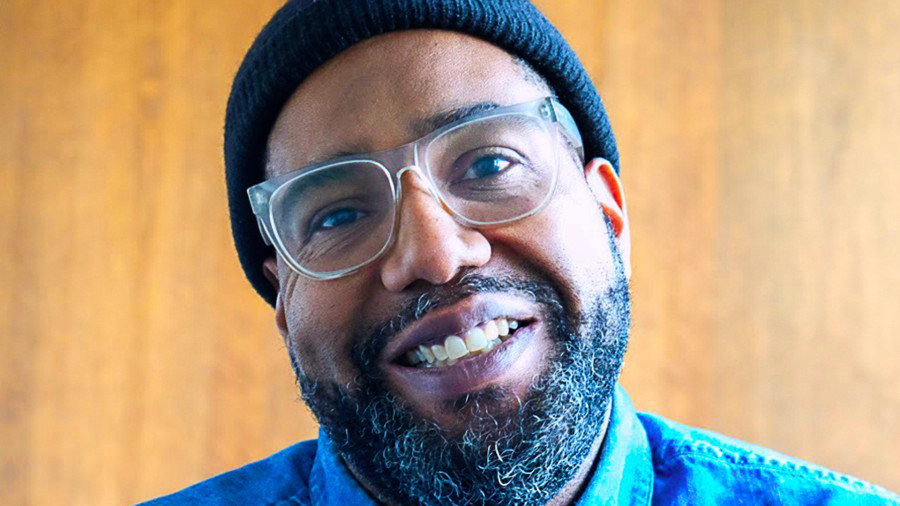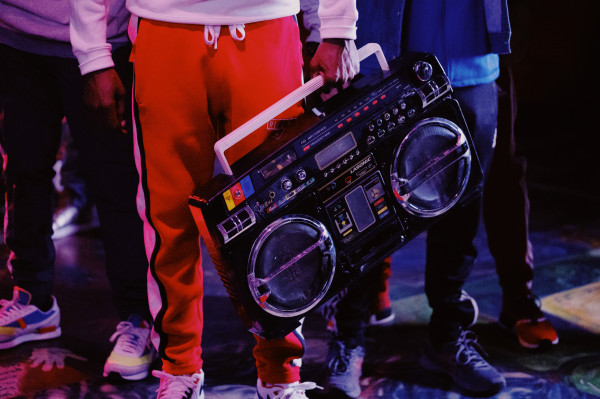He is one of the most prominent Black Canadian supporters and faces behind many talented artists in Canada’s Black music scene. A long-standing and respected music community member, and founding member of ADVANCE, he also sits on the board of directors for Massey Hall/Roy Thompson and The Remix Project.
A couple of weeks ago, Mannix was promoted at Universal Music Canada (UMC) from Senior Director of Urban Marketing to Vice President of Black Music. Know that this is indeed a big deal.
In a world where Black music consumes our radio airwaves and has an unmistakable influence on society and culture, it’s exasperating to mention how the lack of presence of Black music executives in Canada still exists. However, even though we are few, we are mighty.
Mannix has been in the music industry, learning from many positions over the years. However, presently, his focus in his new role is a juxtaposition of marketing and A&R. His creativity and vision behind legendary Canadian artists such as Kardinal Offishall, K-os, and many more was the foundation for Mannix’s reputable status in the industry. He was hit with the music business bug around 16 years old when hip-hop captivated him. His love and passion for it inexplicably took over. At that point, he decided that music would be his career direction.
Mannix’s tastes are a treasure trove of musical genres, but his adoration for Public Enemy’s Yo! Bum Rush The Show and joints like “Rock Box” by Run DMC fueled his trajectory. The angst, edginess and influence of hip hop spoke to him. It helped him to identify as a young Black man and shaped Mannix into who he is today.
Keep in mind, back in the day, seeing Black executives in the company halls wasn’t exactly the norm. Also, access to music companies was a whole other story. “When I first got hired, institutional racism was rampant. My first gig was at BMG, and that’s only because, at the time, the president of BMG Canada was an American named Bob Jamieson. So, he already had a preconceived knowledge of Black music departments. In America, they’ve had them forever. The other person who pushed for my position was Barry Weiss, the head of Jive Records. He would come up every quarter to do presentations and ask, ‘who is working your Black music?’ Everyone would look at him and be like, um, nobody. And he would question, ‘well, why?’” says Mannix. Finally, after interning at MuchMusic, he was able to interview for the job because of the connections he made in his former position.
Speaking to Mannix about how it used to be opened my eyes to a few things. Like him, many of us growing up didn’t have the outlets. It was primarily about where you worked (entertainment magazines, music stores, music promotion, music channels etc.) and who you knew. While we were tapped into by those in the industry, knowing we were a well of musical knowledge and information, fast forward to today, and we can be hired as consultants for the same role we did then for free. Imagine that. But for Mannix, being community minded is at the core of what he does. “I’m about uplifting the culture. So me spreading the word about what I think is cool within the culture was something I felt I had to do,” says Mannix.
In 1992, Mannix’s boss informed him of a survey stating how urban music wouldn’t work in this country. When he inquired about why, he was given a response to the tune of, ‘it’s because there weren’t enough Black people.’ The absurdity of the response is laughable. But it put Mannix in the position to push the conversation even further, “Excuse me, are you trying to tell me that only Black people listen to Black music?” he questioned. And to his surprise, a resounding ‘yeah’ was the reply. This encounter alone perfectly reflects where Mannix started compared to where he is today.
When reading UMC’s press release, the change in wordage stands out. The renaming of ‘urban’ to ‘Black’ music is a significant shift. Thinking back to the history behind the terminology used to name our music charts over time, it’s a noticeable change. From the racialized ‘race records’ in 1920 to rhythm and blues in 1949, urban was the follow-up term birthed from preconceptions of the Black community. It was a phrasing that wasn’t embraced with open arms. Mannix’s stance on the change is forward-thinking and rooted in culture.
“UMC supported me in wanting to call the department that, and not just me, but our internal team here, the community of Black people within this company and the overall company at large. The name is important, but I didn’t want to get caught up in it at the same time. Let’s just call it what it is. Let’s level-set it and move on. It is music of Black origin—which is the majority of modern music on the planet. When you ask somebody what urban is, the description is, ‘well, it’s like rap, reggae, R&B, like afrobeats…” I go, yeah…it’s like Black music,” Mannix replies with a smile.
We dig deeper into the premise of the title change, and Mannix clearly understands its complexities. He shares, “Do I understand why certain name changes had to happen? Well, before there were urban departments, there were race departments. Thank God I’ve never been part of a race record department, but it doesn’t mean that urban was any less troubling. After discussing it internally and talking with Jeffery [Remedios, Chairman and CEO of UMC Canada] about this, he said, ‘well, if that’s what you feel it should be called, then that’s what we’ll call it.’”
“It was important for me to lead the way, and I wanted everybody to be comfortable. It’s not just Black people’s comfort; it’s everybody’s comfort. It’s been proven that you don’t have to be Black to make Black music. You don’t even have to be Black to work in my department. But you better know the culture and what you’re talking about. I believe that for not just Black music, I believe that for country music, people working in the rock department—everybody. I think doing genre-specific marketing and focus is just smart. Pay attention to the cultural significance of the art we are trying to elevate and promote across various platforms. I always tell people we’re selling art, and there’s a nuance to it,” states Mannix.
Mannix is highly devoted to laying a new foundation for the next generation. He wants the opportunities he never had to be front and centre, ready for the taking. “We have a voice, we’ve been empowered, and we have the ability to make change. I’m glad that we’re able to provide options and opportunities. It means making a better, more inclusive future for the industry at large, and I’m all about that,” he says.
But let’s not forget that it’s also about paving the way, making an impact and leaving behind a legacy to be proud of. Mannix says, “When you’ve been around for as long as we have, it’s about what you leave behind. Do I still want to sign that global superstar? Of course, I do! That’s my business! (laughs). It’s in my heart. I want to be the best record company person that I can possibly be. But I realize that the runway is shortening. So at the end of the day, I have to make my mark and leave some legacy so that people coming up after me don’t have to have it as hard as I did and can thrive in whatever direction and wherever they want to be.“

 By
By 








